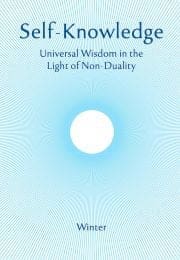The Saving Clause
In the religion of Islam, there is an expression commonly used. It is ‘inshallah’ or ‘In shā’ Allāh’, meaning ‘God willing’ or ‘If Allah wills’. The context is usually some statement about the future, for example, if we say to our friend: ‘See you tomorrow’, his or her first words in response might well be ‘inshallah’. This response occurs so frequently that there is no sense of admonition—just a gentle, meaningful reminder between believers, of the omnipotence of God, and the wisdom of surrendering one’s wilfulness to the influence of that supreme intelligence. It is also a hint that the continuity of our bodily existence is ‘inshallah’. As King Hussein of Jordan, who survived several assassination attempts, used to say: ‘Until my time comes, nothing can kill me. When my time comes, nothing will save me.’
The same idea comes in other great spiritual traditions, with similar forms of wording, such as ‘If Bhagavan (the Lord) wants it’. Its ultimate expression is perhaps found in the saying of Christ: ‘Thy will be done’.
A variation on this theme is contained in the advice given by Hari Prasad Shastri: ‘Live each day as if it is your last.’ This is not meant to be alarming or pessimistic, but a reminder to stay in equanimity as far as possible, to be mindful of our immortal spiritual essence, and to remember that our experiences in this world are impermanent. Our present state of health and security may make it extremely improbable that today will be our last day, yet we do know it can happen, and life is full of unexpected turns of events.
In the context of our attempts to deepen our wisdom, ‘last day’ living does not mean the cancellation of plans, the closure of savings accounts and the ending of relationships. It inspires us to cherish peace of mind, and remember that our worldly affairs are subordinate to our quest for progress on the path to enlightenment, and should not be allowed to enslave us.
The principle could be extended so that we live each hour as if it were our last, for this will intensify our alertness, deepen our inner communion with reality, and liberate our attention from being lost in trivia. On the other hand if there is no urgency, if there is a feeling that we can always do it tomorrow, our deeper quest will be postponed, and our peace of mind and intuitive awareness will be difficult to invoke if our situation becomes challenging.
Our need to be alert to the value of time is conveyed by the thirteenth century Islamic writer and moralist, Shaikh Saadi, at the start of his Gulistan:
One night I was thinking upon my past time, reflecting with regret upon my prodigal use of life… and expressing these verses as applicable to my state of affairs:
‘Every moment a breath is expiring of my life; when I curiously inspect it, I find that only a little is left. O man! Fifty years of thy life are gone, and thou art still in a dream. Perhaps thou might avail thyself of the remaining five days.’
The nineteenth-century sage and poet, Swami Nirbhayananda, often speaks of the world as a ‘three days fair’.
Another phase of this teaching is that if we are intent on pursuing our higher aspiration, all that comes to us is for the best, though sometimes our blessings may be disguised.
‘Inshallah’ is known as ‘the saving clause’. If its spirit is accepted, it saves us from delusion, for our mind will be fortified against worry, as we refuse to allow tomorrow’s predicted clouds—which may never form—to hide today’s sun. More than this, our practice of acceptance keeps our mind open to the deeper reality that underlies every moment. This receptivity prepares our mind to embrace the influx of inner light and peace from the divine presence in our own being, bringing inspiration and joy—often when we least expect it


